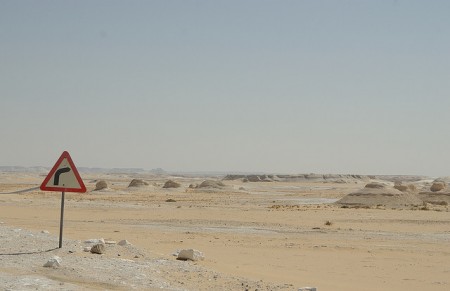
On Sunday, 5 December 2010, Pope Benedict XVI called on the world to pray for “the victims of traffickers and criminals, such as the drama of the hostages, Eritreans and of other nationalities, in the Sinai desert”. By doing so, he lifted the lid on years of international indifference to the plight of the refugees fleeing from the East African chaos northwards towards safety. Shortly thereafter, the Israeli NGO Physicians for Human Rights (PHR) bolstered the papal call with a well-researched report showing that African refugees in Sinai are habitually tortured, assaulted, raped and held for ransom by smugglers hired to bring them through Egypt’s desert.
As a consequence of a number of ongoing human-rights crises in the Horn of Africa, the Sinai has turned into a major center for people trafficking. On their search for safety, the refugees become easy prey to agents of Bedouin traffickers who promise access to Israel via Egypt. Since 2007, the Sinai Bedouins have thus developed a well-established, sizable, and highly organized trafficking network. However, in addition to smuggling people across borders for money, the Bedouins in the Sinai habitually abuse the migrants under their control and hold them for ransom.
The traffickers hold the asylum seekers hostage in various locations across the Egyptian peninsula for weeks or months until their relatives pay thousands of dollars to secure their release. In order to exact those payments the traffickers hold the refugees in steel containers, depriving them of food and water. The defenseless Africans are tortured with hot irons, electric shocks, or whippings. Women are separated from the men, detained in secluded rooms, and subjected to repeated sexual abuse and rape at the hands of their captors. According to the PHR report, many migrants were abused in one or more of these ways every two to three days – sometimes for months – until the demanded money arrived.
Yet even the migrants who finally do find their way over the border into Israel find no safe haven. With the total number of Africans who have crossed illegally into Israel rising to about 35,000 – of which more than 10,000 entered Israel in 2010 – Israel’s government has decided to put an end to it. Israel has thus recently started to build a 240-km barrier along its south-western border with Egypt, and is planning to construct a detention facility to house thousands of infiltrators – with the aim of eventually returning the refugees to their home countries.
Naturally, it should be the responsibility of the Egyptian authorities to solve this untenable predicament. However, Cairo is still holding on to its embarrassing policy of complete denial. It has thus dismissed the Sinai articles and reports as mere slander against its authority. As only a massive and coordinated crackdown on the Bedouin smugglers will stop the flow of illegal immigrants, help Egypt’s image and end the hell that Sinai has become, this problem will probably have to be solved by international intervention. And at the same time, Israel must remember its humanitarian responsibilities and grant “social residency” status to the asylum seekers, so that they can access the country’s social services. In any case, just this once, we should maybe all listen to the Pope’s wise warnings.
Also read “The Human Commodity: Our Global Shame“, a recent article on human trafficking written by Cassandra Clifford for ISN Insights. For even further information, check out our resources on Egypt and refugees.

